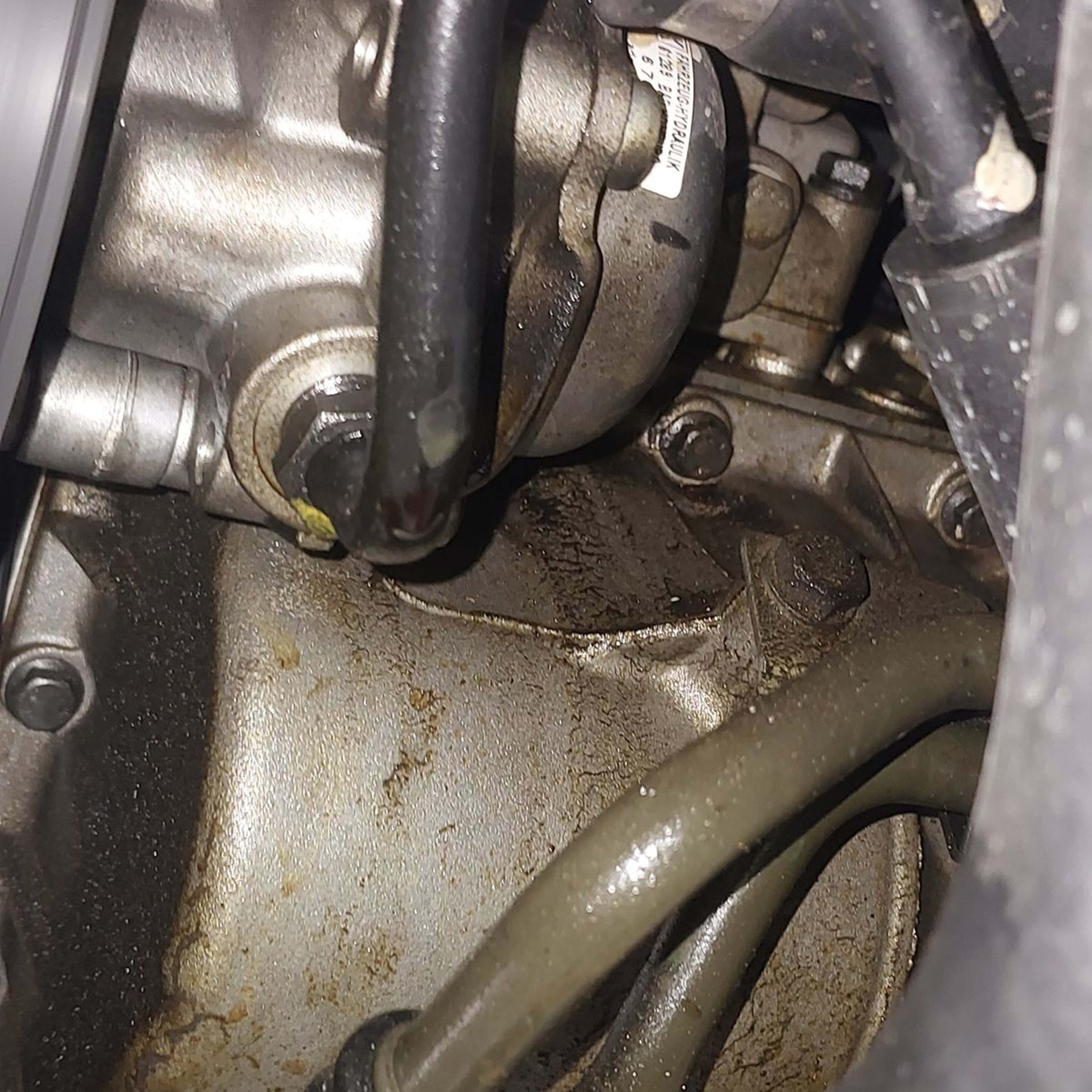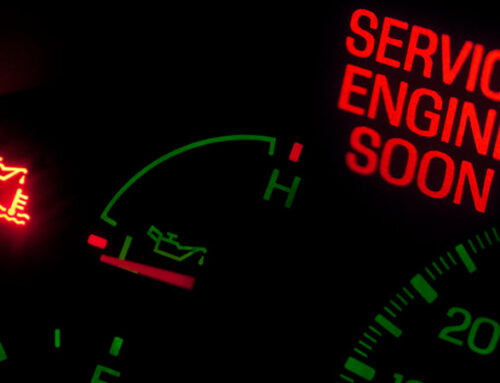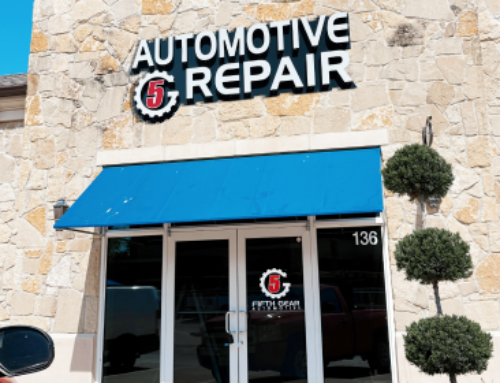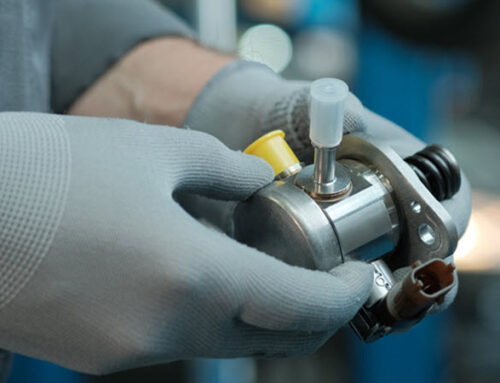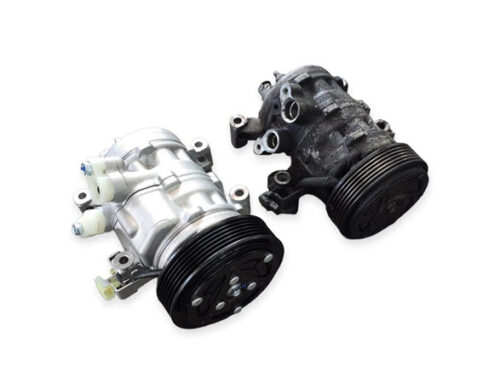Why Does My BMW Keep Losing Oil?
What Makes BMW Unique in Performance and Design
BMW isn’t just another name in the automotive industry, it’s a legacy built on the backbone of German precision and a philosophy centered on “Sheer Driving Pleasure.” This brand doesn’t create ordinary vehicles; it builds machines engineered for thrill, power, and luxury. With innovations like TwinPower Turbo engines, xDrive intelligent all-wheel drive, and lightweight composite materials, BMW blends form with function unlike any other.
BMW’s edge lies in its ability to harmonize performance with luxury. These cars are meticulously designed for handling, responsiveness, and aesthetic appeal, which naturally means they’re equipped with highly sophisticated mechanical systems. This complexity is part of what gives BMWs their signature feel, whether you’re behind the wheel of a 3 Series sedan or a sporty M4 coupe, the drive feels deliberate and refined.
But that same complexity also comes with its set of challenges. More moving parts, advanced electronics, and tight engine compartments mean that small issues, like a worn gasket, can turn into larger mechanical problems if not addressed promptly. Every system is interconnected, and any oil-related malfunction could jeopardize components like the timing system, ignition coils, or turbocharger.
BMW owners are passionate about their rides for a reason, but the relationship comes with a responsibility: consistent, expert-level maintenance. This is especially true when it comes to something as foundational as engine oil, a lifeline for all that premium machinery under the hood. Whether you’re dealing with an oil leak or just trying to avoid one, understanding how your BMW functions is the first step to making informed, cost-effective decisions about its care.
So, if you’re a proud BMW driver or a prospective owner looking to learn more about oil maintenance, read on. We’ll dig deep into the most common oil leak issues, what causes them, how to detect them early, and what to do before things escalate.
The Reality of BMW Oil Leaks
Are BMW Oil Leaks Common?
Let’s get one thing straight – yes, BMW oil leaks are common, and if you drive one long enough, you’re likely to face it at some point. While it might be disappointing to hear, it’s not necessarily a mark against the brand. In fact, the very features that make BMWs performance kings—tight tolerances, powerful engines, and performance-based tuning, also contribute to their vulnerability to oil leaks.
The issue isn’t about poor engineering. It’s about aging materials and the constant pressure placed on engine components. BMW engines run hotter than average, which can dry out rubber seals and gaskets faster. Also, the intricate design of BMW engines often places gaskets and seals in hard-to-reach spots where heat builds up quickly. Over time, even the highest-grade materials degrade.
From the entry-level 320i to the monstrous M5, oil leaks have been reported across the board. However, they are especially prevalent in older models with over 60,000 miles, where the rubber and plastic parts start to wear. If your BMW is past the six-year mark, and you haven’t had your gaskets checked, you might already be experiencing a slow leak without realizing it.
Oil leaks can show up subtly, maybe it’s just a faint smell of burning oil or a little grease on your garage floor. Ignore these signs, and you could end up with more than just a messy engine bay. You might be looking at sensor failures, wiring damage, or even catastrophic engine problems.
That’s why awareness is key. By understanding where and why BMWs leak oil, you’re better equipped to take preventative action. Regular maintenance, early diagnosis, and knowing the symptoms can save you from expensive repairs and protect your vehicle’s long-term value.
Most Common BMW Oil Leak Sources
Valve Cover Gasket: The Primary Culprit
One of the most notorious troublemakers in BMW oil leaks is the valve cover gasket. This gasket seals the top of your engine, keeping the oil inside while the camshafts and valves do their work. It’s a vital part of the engine’s oil circulation system, yet it’s also one of the most prone to failure.
BMW engines, especially those in models like the E90 3 Series or F10 5 Series, generate a lot of heat. Over time, this heat cooks the valve cover gasket, causing it to become brittle and cracked. When that happens, oil starts seeping out. You might not notice it immediately, especially if it’s a slow leak. But leave it long enough, and it can create greasy residue on your engine, ruin ignition coils, or trigger a check engine light.
Symptoms of a leaking valve cover gasket include:
- A strong burning oil smell when the engine heats up
- Oil pooling near the spark plugs
- Visible dark stains around the valve cover area
- Smoke rising from under the hood
One of the trickiest parts? A leaking valve cover gasket often doesn’t drip oil onto the ground. Instead, the oil gets caught in the engine bay or on the splash shield underneath, making it hard to detect unless you’re looking under the hood.
To prevent early failure, always use high-quality synthetic oil and change it at regular intervals, ideally every 5,000 to 7,000 miles. Avoid aftermarket gaskets; they’re often a false economy. BMW original parts are made to withstand the specific pressures and temperatures of your engine.
If you drive an older BMW and haven’t had the gasket checked or replaced, it’s time to schedule that inspection. A minor fix today can prevent major headaches down the line.
Oil Filter Housing Gasket Leaks
The oil filter housing in a BMW serves a crucial purpose: it holds the oil filter in place and connects the oil cooler and passages. The gasket that seals this housing is small, but when it fails, it can lead to one of the most frustrating and messy oil leaks in BMWs.
This gasket is located at the point where the housing bolts to the engine. With heat cycling and age, the gasket deteriorates, allowing oil to leak down the front of the engine block. Left unchecked, it can leak onto the serpentine belt, alternator, or even engine mounts, causing further damage.
Signs of a bad oil filter housing gasket include:
- Dark oil spots forming under the front passenger side of the car
- Burnt oil smell from under the hood
- Decreasing oil levels without visible drips
These leaks are often mistaken for valve cover leaks or even timing cover issues because of their location. That’s why it’s important to have a professional do a full inspection to pinpoint the exact source.
This repair is a bit more labor-intensive than the valve cover gasket, but it’s essential to tackle it as soon as symptoms appear. Allowing oil to coat belts and wiring can cause widespread mechanical and electrical failures, dramatically increasing repair costs.
Using OEM parts for replacement is a must. Cheap gaskets may not seal properly or might degrade quickly under heat. Regular oil changes and inspections during service visits are your best defense.
Oil Pan Gasket Issues
How This Gasket Wears Out Over Time
The oil pan gasket is another essential yet vulnerable part of your BMW’s engine. It sits between the oil pan and the engine block, sealing the area to prevent oil from leaking out. Given its position at the bottom of the engine, the gasket is constantly exposed to high temperatures, road debris, water, and salt, making it a prime candidate for wear and tear over time.
As BMWs age, especially those over 75,000 miles or 6+ years old, the oil pan gasket begins to deteriorate. This process happens gradually. Heat causes the gasket to harden and crack, while vibrations from the engine can cause it to shift or loosen slightly. Additionally, the constant expansion and contraction due to temperature changes weakens its integrity, making it susceptible to leaks.
Unlike valve cover or filter housing leaks, oil pan gasket issues are more difficult to detect early because the oil drips directly onto the splash shield or subframe. As a result, most drivers won’t see oil stains on the driveway or garage floor until the leak becomes severe. Instead, they may notice low oil levels or a persistent burning smell after long drives.
A professional inspection is often the only reliable way to confirm an oil pan gasket leak. Our team of BMW expert technicians will typically lift the vehicle and examine the underside for fresh oil seepage along the oil pan edges. Repairs require removing the pan itself, cleaning the mating surfaces, and replacing the gasket with an OEM part to ensure proper sealing.
This is not a repair to delay, neglecting it could lead to oil starvation, increased engine friction, or eventual engine failure. Consider incorporating an oil pan inspection into your regular maintenance plan, especially if your BMW has crossed the 60K mile mark. It’s a small investment that could save you thousands.
Crankshaft Seal Failures
Front vs. Rear Crankshaft Seal
The crankshaft seals, located at both the front and rear of the engine, are small components with a big responsibility. They seal off the rotating crankshaft where it exits the engine, keeping oil inside while allowing the crankshaft to spin freely. When these seals fail, they can leak significant amounts of oil, leading to more than just a dirty engine bay.
The front crankshaft seal is often easier to access and tends to leak less dramatically. It’s positioned behind the engine’s front pulley or harmonic balancer, so any oil leak here might first appear near the belts or dripping down onto the splash shield. Over time, even this minor leak can coat surrounding components with oil, leading to accelerated wear or belt slippage.
The rear crankshaft seal, however, is the more notorious of the two. Tucked deep between the engine and transmission, it’s incredibly labor-intensive to replace. When it leaks, you’ll likely see oil collecting near the transmission bell housing or even dripping onto your garage floor. Worse still, this leak can affect clutch performance in manual transmission models or create internal contamination in automatic setups.
Symptoms of crankshaft seal leaks include:
- Persistent oil loss without clear origin
- Strong smell of burning oil after engine warms
- Oil splashes on engine mounts, belts, or nearby sensors
- Occasional misfires or check engine lights due to contaminated electronics
Given the difficulty of access, especially for the rear seal, this isn’t a DIY job. Professional technicians must disassemble significant engine or transmission components to reach the area and perform a precision reseal using factory-grade parts and tools.
Because these seals tend to fail in high-mileage or high-performance engines, proactive inspection during major services like timing chain or clutch replacements is smart. If you’re already investing in deep maintenance, that’s the perfect time to address these hidden but critical seals.
How to Spot an Oil Leak in Your BMW
Visual Clues and Smells
The good news is, many BMW oil leaks can be detected early, if you know what to look for. One of the most straightforward methods is to use your senses. Pay attention to changes in how your car smells, what you see under the hood, and even the condition of your driveway.
Let’s start with sight – A leaking BMW will often leave dark brown or black oil stains under the engine area. However, because many BMWs have underbody splash shields, these leaks may not reach the ground immediately. Instead, you might notice a shiny, greasy buildup on engine components like the valve cover, timing cover, or oil filter housing.
Smell is another strong indicator. A burning oil scent after you’ve parked the car or while idling at traffic lights is often a red flag. This happens when oil leaks onto hot surfaces like the exhaust manifold or catalytic converter. If the smell gets stronger over time, your leak may be worsening.
Other visual signs include:
- Steam or smoke rising from under the hood after stopping
- Oil residue on belts or pulleys
- Check engine light or low oil pressure warnings
Touch can even help – if you suspect a leak, use a clean rag or paper towel to wipe around gasket areas. Any fresh, sticky oil residue is a clear sign something’s amiss.
A good tip: Regularly check your engine oil dipstick. If levels are dropping faster than normal, and you haven’t spotted any leaks on the floor, you may be dealing with a hidden leak. Schedule an inspection right away to avoid damage.
In short, trust your senses. If your BMW smells off, feels off, or is running strangely, check the usual suspects or bring it in for professional diagnostics. It’s better to be safe and dry than sorry.
Dashboard Warnings and Unusual Engine Sounds
Modern BMWs are equipped with sophisticated electronics designed to monitor every detail of the car’s operation. When something goes wrong, especially with oil levels or engine performance, the vehicle usually lets you know right away. But not all warnings are crystal clear, and some symptoms are more subtle.
The most obvious sign of trouble is the oil pressure warning light. If this illuminates, stop driving immediately. It means your engine isn’t getting enough oil pressure to function properly, and continuing to drive could result in catastrophic engine damage.
Another common alert is the “Check Engine” light. While this can be triggered by dozens of issues, an oil leak, particularly one affecting engine sensors or ignition components, can easily be the cause. For example, leaking oil from a valve cover can drip onto spark plugs and coils, causing misfires that trip the ECU.
You may also get warnings like:
- “Add Engine Oil”
- “Drivetrain Malfunction”
- “Engine Overheating”
Beyond dashboard lights, listen closely to your engine. Knocking, ticking, or grinding noises usually mean internal components are not being lubricated properly. If your engine is making unusual sounds, especially after a cold start or during hard acceleration, don’t ignore them. These noises often precede severe damage.
Another auditory clue is a high-pitched squealing noise, often from oil-soaked belts. If oil has leaked onto the serpentine belt, it can slip on the pulleys, creating that tell-tale screech when starting or turning the wheel.
Remember: Your BMW is smart, but it needs you to pay attention. Combining electronic alerts with physical inspection gives you the best chance of catching oil leaks early before they lead to major repairs.
Consequences of Driving With an Oil Leak
Engine Wear and Potential Failure
Driving a BMW with an oil leak might not seem like a big deal at first, until it becomes one. Even minor leaks can slowly reduce oil levels, which means your engine isn’t getting the lubrication it needs. When oil levels drop, internal parts start grinding against each other. That friction creates heat, stress, and eventually – damage.
If you ignore it, your engine could suffer:
- Premature wear on pistons, bearings, and camshafts
- Misfires due to oil contamination in spark plug wells
- Failing sensors and shorted electronics from oil-soaked wiring
Worst-case scenario? Your engine seizes up from lack of oil and leaves you stranded, possibly with a $5,000+ repair bill or the need for a full engine replacement.
Safety Hazards and Repair Costs
There’s more than just mechanical wear to worry about. Leaking oil dripping onto hot engine parts, especially the exhaust manifold, can ignite and cause an engine fire. It’s rare, but it happens.
Plus, if the oil lands on belts or hoses, it can weaken rubber over time, leading to:
- Slipping or broken serpentine belts
- Loss of power steering or air conditioning
- Damage to alternator or electric compressor
Repair costs escalate quickly when oil leaks go unchecked. What starts as a $200–$300 gasket job could snowball into $1,000+ in damage. Curious about repair costs for BMWs, check out our BMW Ownership: Costs, where we break down the most common repairs and what you could expect to pay over time.
Bottom line: Don’t gamble with an oil leak. It’s not worth the risk.
Preventative Maintenance Tips

Zach Gorton
Oil Change Intervals and Best Practices
Ask a dealership, and they might say you only need to change your BMW’s oil every 10,000 miles. But at Fifth Gear Automotive, our technician Zach Gorton strongly recommends every 5,000 miles, especially for older or high-mileage models.
Why? Because:
- Synthetic oil breaks down under heat, especially in turbocharged or high-performance engines.
- Shorter intervals mean less sludge, cleaner gaskets, and less chance of leaks.
- Frequent changes give techs a chance to inspect seals before they fail.
And don’t cut corners on parts:
- Use only full synthetic oil (check your owner’s manual for grade).
- Choose OEM gaskets and filters – aftermarket parts often don’t seal correctly or degrade faster.
- Also, avoid over-tightening the oil filter cap or drain bolt – another common cause of leaks.
Pro tip: After every oil change, monitor your oil level weekly for the first month. A drop could signal a loose gasket, stripped plug, or improper seal – all things that should be fixed right away.
The Importance of Professional Diagnostics
Why DIY Isn’t Always Safe
We get it – YouTube makes it look easy. But diagnosing and repairing oil leaks in a BMW isn’t like changing oil in your old Civic. BMW engines are tightly packed, with components layered and tucked in tight spaces.
At Fifth Gear Automotive, we’ve seen many well-meaning DIY jobs turn into:
- Over-tightened bolts cracking aluminum housings
- Incorrect gasket placement leading to bigger leaks
- DIY sealants clogging oil passages
Benefits of OEM-Level Equipment
Zach and our ASE-certified team use OEM diagnostic tools – the same systems BMW dealers use. These tools don’t just scan fault codes; they:
- Pinpoint specific leak locations
- Analyze sensor behavior affected by oil contamination
- Monitor oil pressure in real-time
This precision means faster diagnostics, fewer parts replaced, and better long-term results.
In Zach’s own words:
“80% of the time, customers don’t know their BMW has an oil leak because it’s dripping onto the splash shield. They tell us, ‘I don’t see anything leaking,’ but we find oil on belts, the compressor, the alternator – sometimes even the exhaust, which can cause a fire. Anything above 60-75K miles, or around 6 years old, is more likely to leak due to plastic warping and aging seals.”
That’s why regular inspections are key, and why trusting a shop like Fifth Gear Automotive can keep your BMW running safer, longer.
Case Study: Diagnosing a BMW 325Ci Oil Leak
Technician’s Approach to Multi-Point Inspections
When David Lawson brought in his classic 2006 BMW 325Ci, it wasn’t for an oil leak, it was just a routine check-up. But during the inspection, our BMW expert technician, Zach Gorton, noticed low oil levels and some tell-tale residue around key engine components.
Using a multipoint approach, Zach:
- Inspected the valve cover, oil filter housing, and oil pan
- Found leaks in all three locations
- Took photos to document the damage
- Performed targeted repairs with BMW OEM parts
Thanks to proactive maintenance, David avoided thousands in possible engine damage and got his collectible convertible back in top form.
Inspection images taken by our technician, Zach:
Customer Experience and Testimonials
Satisfied BMW Owners Speak Up
David was more than happy with the result. He shared this awsome review after picking up his car:
“Great service! I got my classic BMW 325ci sorted out with lots of much-needed maintenance and general upkeep. It’s like a fresh start for this collectible convertible. Fifth Gear was the only shop in the area willing to work on it. They did a great job!”
That’s the kind of experience we aim for with every visit – clear communication, expert work, and peace of mind.
Conclusion: Don’t Let Oil Leaks Ruin Your BMW Experience
Oil leaks aren’t just a nuisance, they’re a warning sign. And ignoring them could lead to bigger headaches, costly damage, or even a breakdown at the worst time. But the good news? You don’t have to go it alone.
Let the experts at Fifth Gear Automotive diagnose and resolve your BMW’s oil leak issues with precision, professionalism, and personal care. From inspection to repair, every step is handled with the same attention to detail that went into building your Ultimate Driving Machine.
With free pick-up and delivery, loaners available, and a complimentary car wash, we deliver dealership quality with concierge-level convenience. It’s what your BMW (and you) deserve.

BMW Oil Leak Repair

